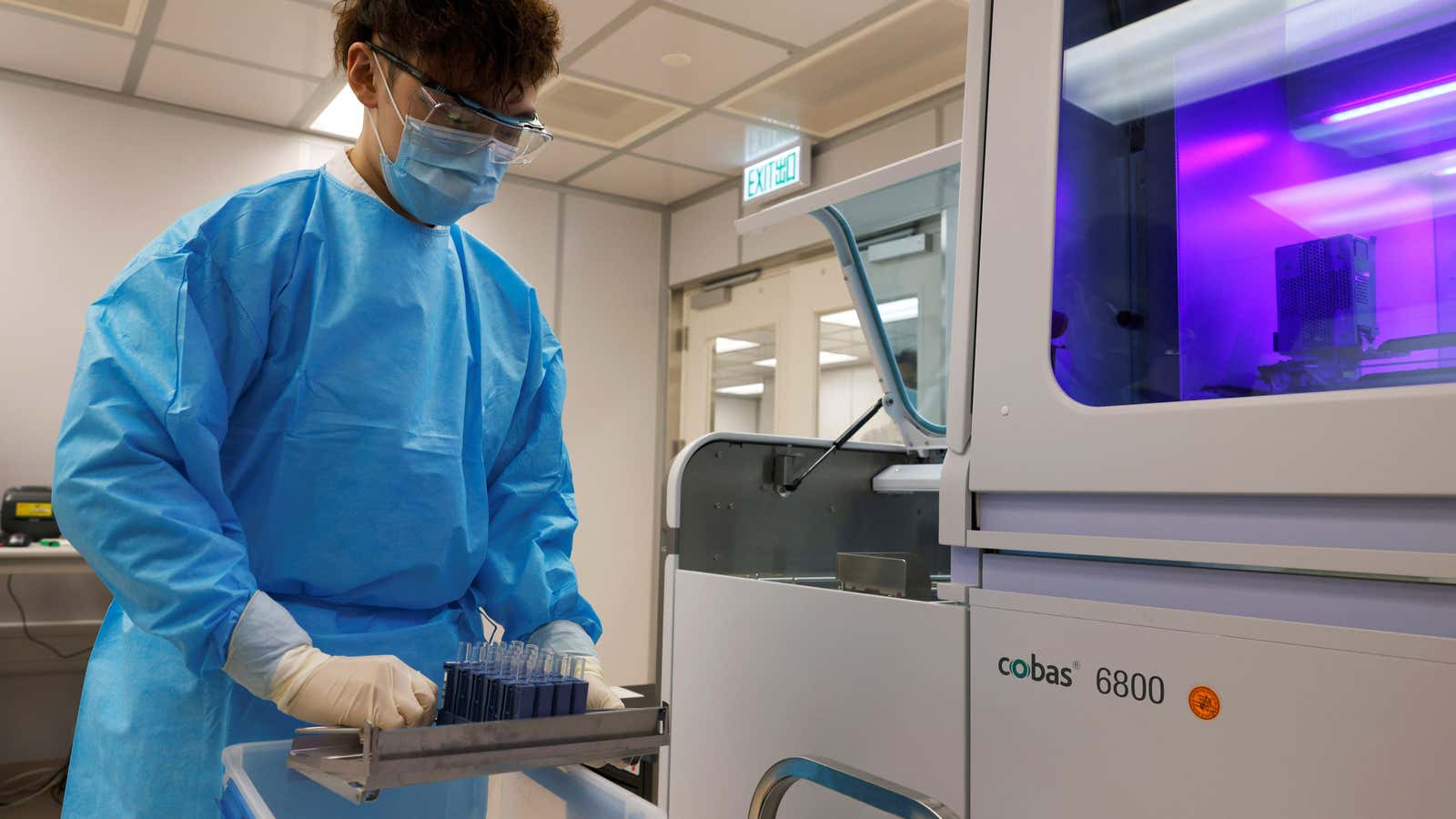Actemra, the anti-arthritis drug used to treat hospitalized Covid-19 patients, is in short supply.
The medication was approved for use on Covid-19 patients by the Food and Drug Administration in June, and the European Medicines Agency is currently evaluating its use. Demand for Actemra has gone up 400% above its pre-pandemic levels, according to Swiss pharmaceutical company Roche, which manufactures the drug through its subsidiary Genentech.
As cases of Covid-19 spike around the US and the world, the maker warned that the drug would be out of stock by the end of the week, and it will take two weeks to replenish supplies.
Roche says the shortage happened despite its efforts to ramp up capacity, and unless the pandemic relents, it expects supplies to remain tight in the US. The drug, whose generic name is tocilizumab, is one of few medications (including remdesivir, and Regeneron’s antibody cocktail) that has shown success in the treatment of severe Covid-19 cases.
The World Health Organization has called for the company to ensure equitable distribution of the existing doses, but with no stocks of Actemra even in rich countries, there is little hope the US-made drug will be available elsewhere in the short term.
In order to increase capacity, Roche confirmed this week it will not assert its patent for the drug in low- and middle-income countries. This will allow international manufacturers to produce it without having to pay hefty intellectual property rights to the Swiss giant.
But though Roche’s is an important step toward better global access to critical drugs, its commitment falls short of what would be needed to address this and other pandemic shortages: A patent waiver on Covid-19 treatments and vaccines.
The case for suspension of Covid-19 drugs patents
For nearly a year, India, South Africa, and other low- and middle-income countries have been asking the World Trade Organization (WTO) for a suspension of patents on Covid-19 drugs and technologies until the end of the pandemic.
Pharmaceutical companies, supported by the EU, the UK, and other rich countries, are against the proposal, which would drastically reduce their revenue from Covid-19 treatments.
The US, on the other hand, has expressed support for the waiver, albeit exclusively for vaccines. But the Biden administration hasn’t really pushed the agenda or worked to convince its counterparts, so its stance so far has been little more than symbolic, says Tahir Amin, the founder of the Initiative for Medicines, Access & Knowledge, an organization focused on health justice.
If passed, the waiver would do what Roche did with Actemra: allow drugmakers around the world to produce Covid-19 medications without having to ask for licenses or pay for them. But it would go further, as it would also apply to intellectual property and information necessary to make and test the drug, requiring a higher degree of cooperation from the original manufacturer. While Roche has indicated it will collaborate with drugmakers in this case, the waiver would have the important advantage of not leaving lifesaving patent-sharing to corporate goodwill.
The waiver would also cover all countries, allowing rich ones, which have higher capacity but are at the moment left out of Roche’s commitment, to produce the drug.
At the very least, Roche’s decision to not assert patent rights in order to increase tocilizumab supplies bolsters waiver advocates’ case—and undermines big pharma’s favorite argument against patent waivers, that low- and middle-income countries lack the capacity and technology to produce safe drugs.
Countries can just make their own Actemra—sort of
For rich countries not covered under the Roche setup, there is another option to combat tocilizumab shortages: compulsory licensing.
Under WTO agreements, governments can produce a drug without the authorization of the patent holder. This is a tool reserved for emergencies, but it’s the government’s prerogative to decide what constitutes an emergency and move forward with the production of a generic version of the drug.
With the rise in Covid-19 cases, Amin suggests countries consider this option to prepare their own stocks of tocilizumab. “Countries should start issuing compulsory licenses, and not even wait for the [patent] waiver,” he says.
But compulsory licensing only helps to a point. In most countries, in order for a generic drug to be approved for use, it has to be demonstrably similar to the original. And to show that, local makers need intellectual property documents they wouldn’t have access to unless the WTO patent waiver were in place.
Further, not all poor countries have medicine-making capabilities, and compulsory licensing only allows production for domestic use. Without Roche’s approval, rich countries that produced the drug wouldn’t be able to export it to other countries in need.
